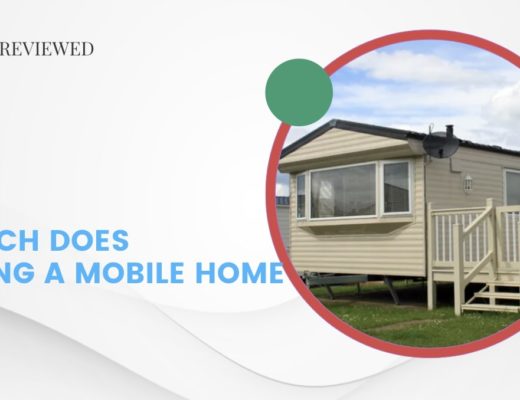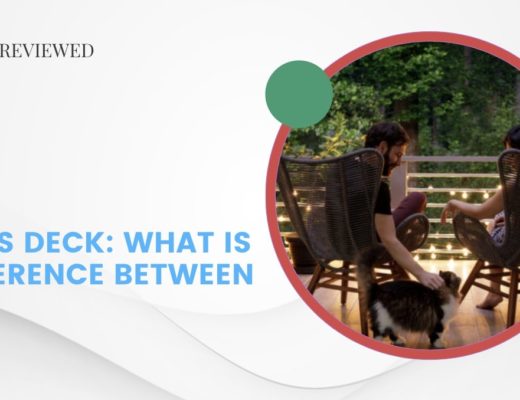Ever jumped into a pool to de-stress and relax only to find it too cold? Pretty upsetting, isn’t it?
We know that feeling too well, so we’ve decided to make a pool heater installation guide to help you choose the best pool heater and avoid getting a cold shock from the pool water.
We’ll discuss the types of pool heating systems and their installation, operation, and repair costs. We’ll even give out some tips to minimize operating costs, so keep on reading!
Types of Pool Heating Systems
Gas Pool Heaters
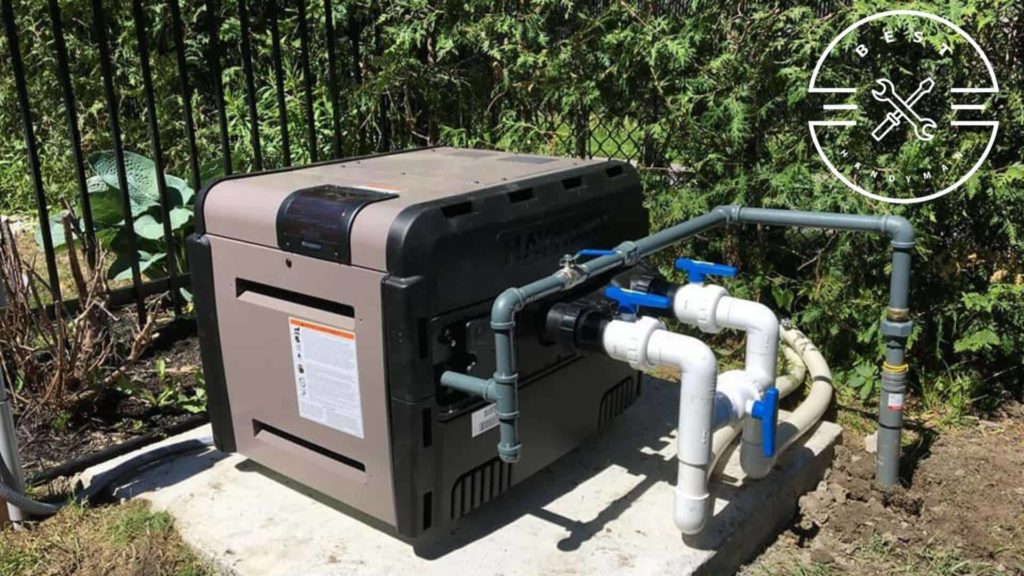
As the name suggests, gas pool heaters use natural gas or propane to warm swimming pool water. These are the most common heaters you’ll find in residential areas.
They have combustion chambers where gas is burned, producing heat in the chamber’s copper coils. These coils then transfer the heat to the water once it passes through them.
Many pool owners prefer this type of pool heating system because of its inexpensive initial cost and quick heating process. They can heat up the pool anytime they want without having to wait, unlike with other heating systems.
They’re also reliable during winter, no matter how harsh the weather is. As long as the owners have gas or propane, the pool can be heated.
They, however, have a relatively short lifespan. They have an average useful life of five years but can last up to 10 years if maintained properly.
They’re also costly to operate. Gas is expensive, and you’ll need to have a constant supply if you want to operate the heating system, so expect a high operating cost.
Additionally, only professionals can repair them because of how complex they are. Trying to fix them on your own can be dangerous, so maintenance and repair fees can also be expensive.
Pool Heat Pumps
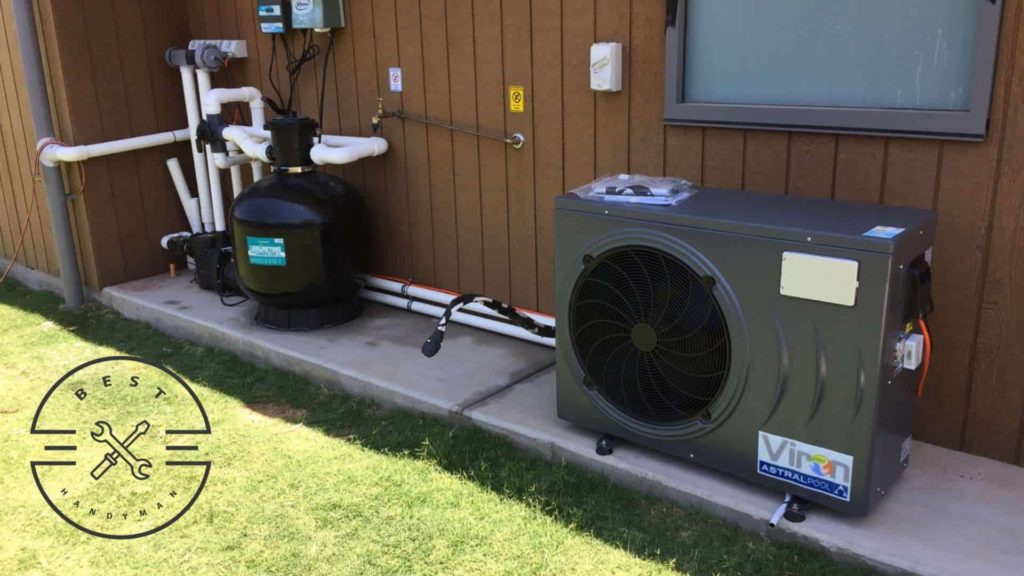
Pool heat pumps are among homeowners’ most popular choices for pool heating systems. They’re reliable, low maintenance, and relatively cheaper to run than gas pool heaters.
They provide consistent performance any time of the year, and external factors like weather conditions or availability of gas don’t affect them greatly.
However, you may expect to have problems when the temperature gets really cold, below 10°C, as they won’t be able to get any heat from the air.
On the upside, they also have a long lifespan, lasting anywhere between 10 and 25 years.
Although they use electricity to operate, they’re quite cost-efficient. Compared to gas pool heaters, they’re a lot cheaper to run since gas can be very expensive.
Moreover, they can also be used to cool the water, which might be essential during summer or for people living in warmer climates.
On the other hand, there are some notable drawbacks that you have to consider when choosing this type of heating system. They can be costly to install and are also relatively slow when it comes to heating water.
The initial cost can be quite high with all the equipment that needs to be purchased and the electrical requirements that need to be met.
In addition, the time needed to reach the desired temperature for the water also depends on the ambient air temperature, so it’s a lot slower than gas heaters.
Solar Pool Heaters
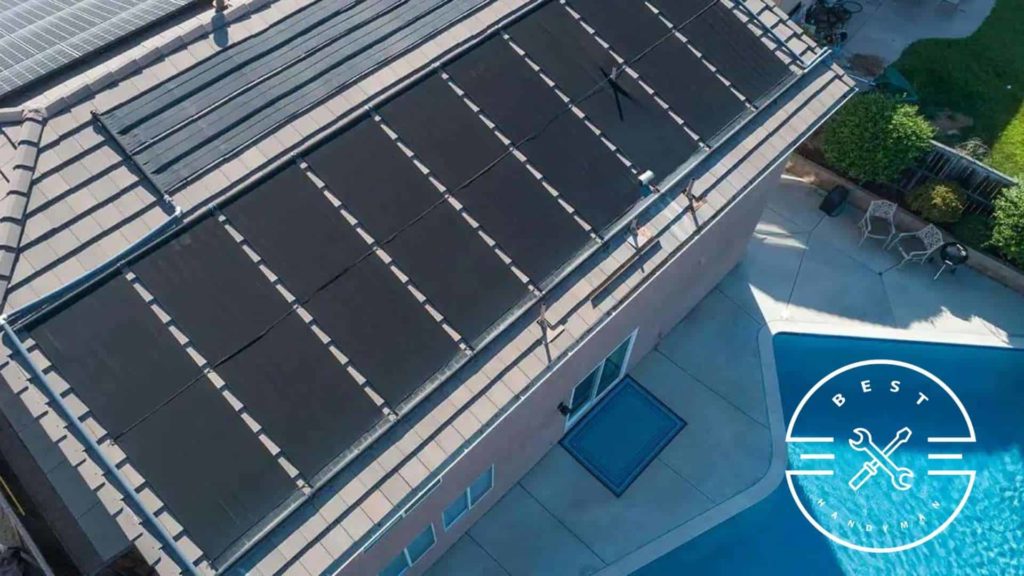
Solar pool heaters use the energy coming from the sun to raise the temperature of the pool water.
A solar pool heating system has a component called “solar collector,” which absorbs and converts sunlight into heat. Water pumped by the pool’s circulation system then passes through the solar collectors, which will help heat it before it returns to the pool.
These sun collectors are usually installed on the roof to maximize their exposure to the sun.
The good thing about solar pool heaters is that they’re very eco-friendly and cost-efficient.
They use renewable solar energy and reduce reliance on fossil fuels, which in turn minimizes the negative effect the heating system can have on the environment.
Additionally, since they use solar energy, you don’t have to worry about electric or gas expenses, which are unavoidable for other types of solar heating systems.
The only downside about this type of heater is they aren’t as efficient as other heating systems when you live in a place with limited sunlight. You may also need to buy a lot of solar panels to get your desired temperature, which takes up a lot of space.
Cost of Pool Heater
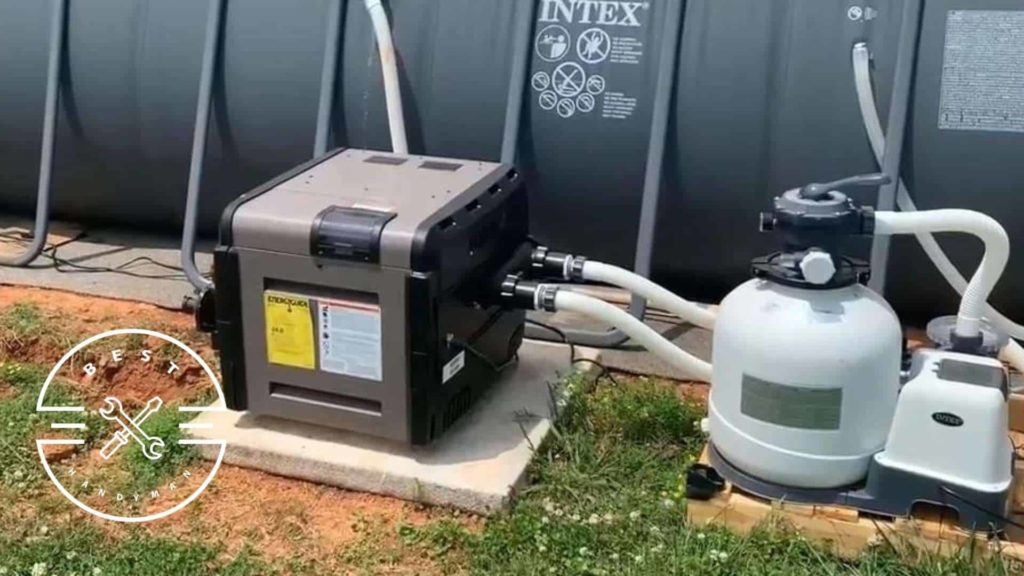
The price of pool heating systems varies greatly based on the type of heater you’ll use and its capacity. They are expensive, though, regardless of the type, so expect to cash out a huge amount if you want to keep your pool warm.
Gas pool heaters are the cheapest type of pool heaters you can get in the market right now. Gas pool heaters can cost around $1,500 to $5,500, depending on the size, location, and brand.
Pool heat pumps are slightly more expensive, costing $2,500 to $7,500. They usually cost more since they have a lot of electrical requirements and tend to last longer.
The cost of solar pool heaters, on the other hand, is highly dependent on the size and number of units you’ll need. If you have a small pool, they can be cheaper or cost the same as heat pumps, but if your pool is big, expect to pay more.
Solar pool heaters typically cost $2,500 to $9,000.
Labor Cost
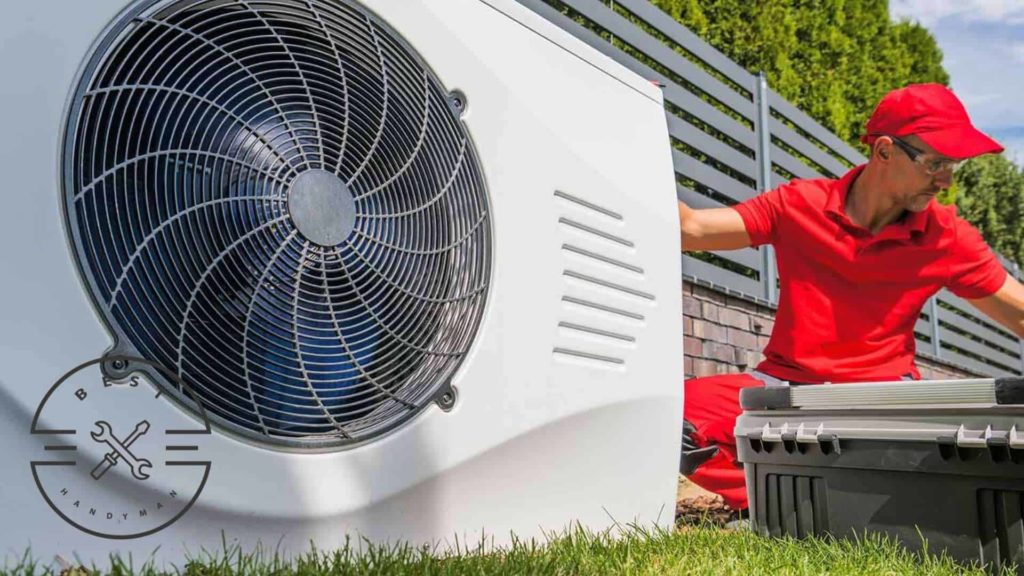
Installing pool heaters can be a complex task and is best left to the hands of professionals. However, if you do employ their service, expect to pay for labor costs.
The labor cost to install pool heaters usually ranges around $500 to $2,000, depending on the type of heater, your location, and the installer’s personal rates.
Pool heat pumps usually cost around $500 to $1,000 to install, while gas pool heaters can be slightly more expensive, costing $500 to $1,500.
Solar pool heaters, on the other hand, cost $500 to $2,000 to install, depending on the number of panels and the technician.
Cost to Run a Pool Heater
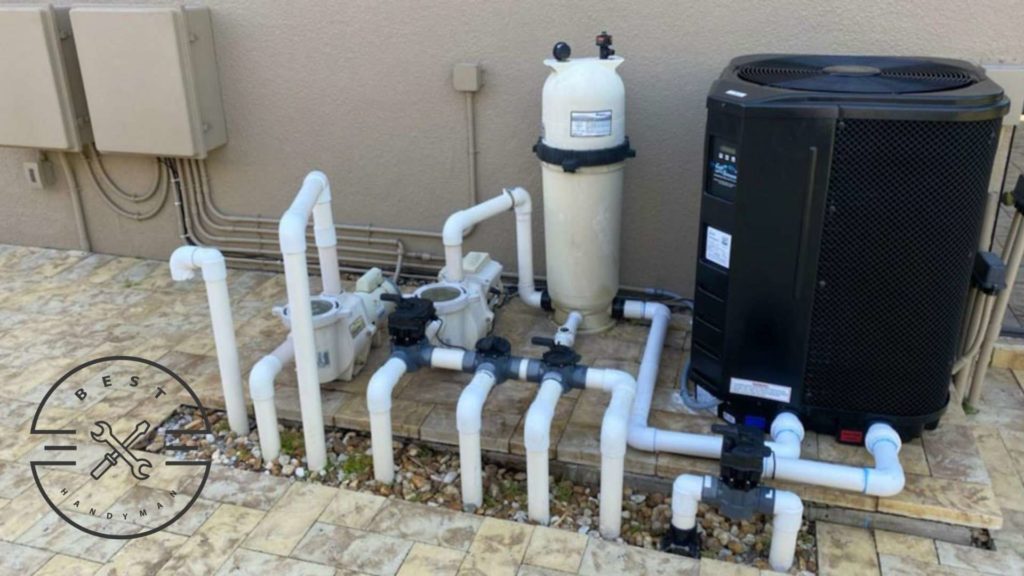
Pool heating isn’t free, especially when you use a gas pool heater or heat pump. The expenses don’t end by just buying a heating unit and paying for installation costs.
There’s a monthly cost that you need to take care of if you want to keep the water in your pool warm.
Gas pool heaters that utilize natural gas typically cost $200 to $400 a month to run, depending on the gas usage and price. On the other hand, gas pool heaters that use propane cost a bit more, as propane tends to be more expensive.
You can expect to pay $200 to $850 per month if you use propane.
If you have pool heat pumps, they’re relatively cheaper to run than gas pool heaters. You can expect an increase of $120 to $200 in your monthly electric bill after installing this heating system.
A much cheaper heater to run, though, is a solar pool heater. They cost almost nothing to run unless the pump uses electricity.
For solar pool heaters, you can expect to pay $0 to $20 a month for operating costs.
Ways to Reduce Operating Cost
Buy a correctly sized heater
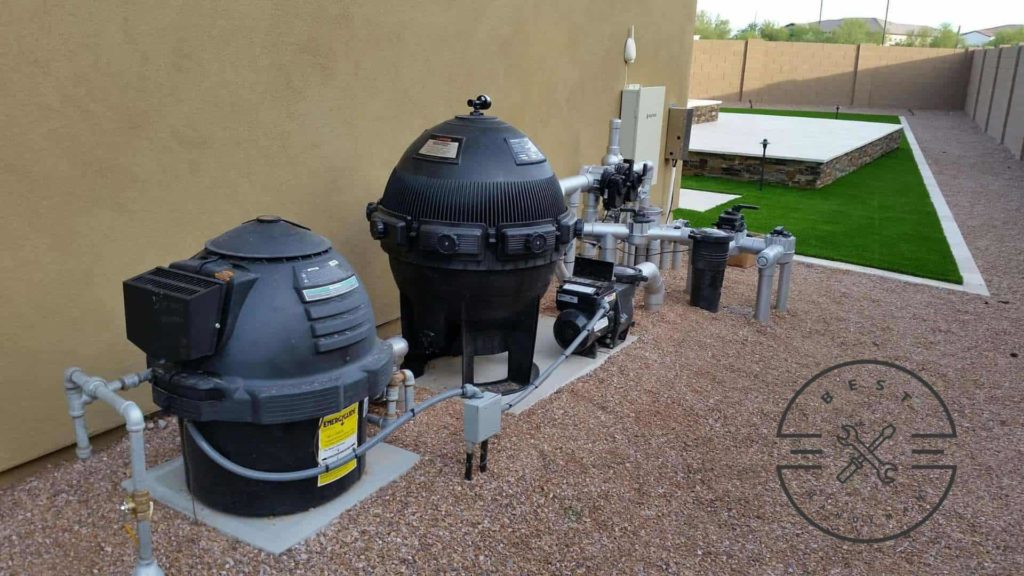
An undersized heater may struggle to reach and maintain the desired temperature, resulting in prolonged operation and increased energy consumption. Conversely, an oversized one may lead to energy waste.
A correctly sized heater tends to last longer since they work at its highest efficiency level. They work as they are intended to, and operations aren’t prolonged.
Consult with professionals before buying a heating unit, as there are a lot of factors, like the size and the pool’s location, to consider when choosing the right size.
Use a pool cover or solar blanket
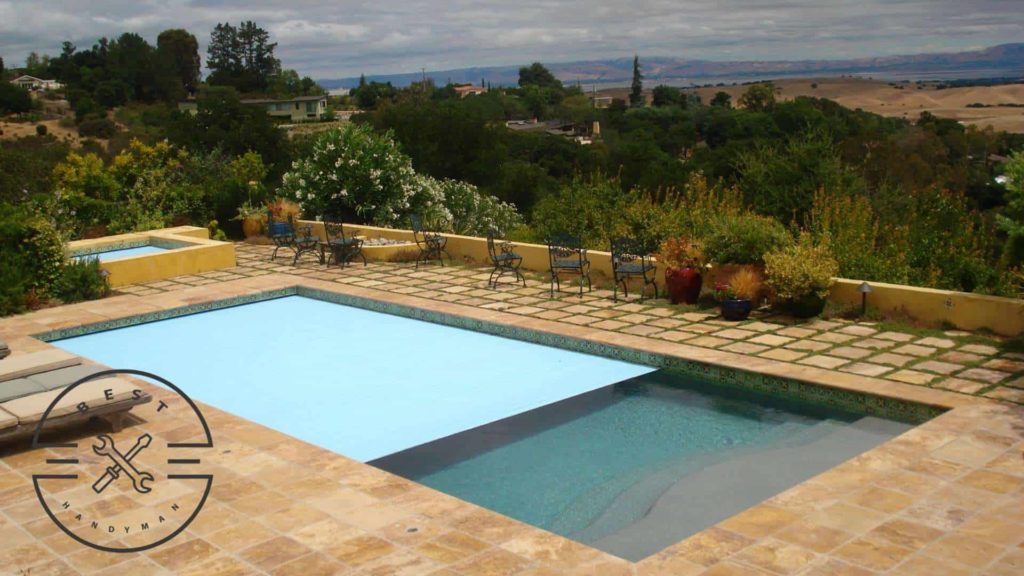
A pool cover can reduce heat loss. In fact, it can help reduce your energy expenses by 50% to 70%, depending on the quality of the cover.
A solar blanket, on the other hand, traps the sun’s heat and uses it to heat the water. This reduces the workload on the heating system, reducing cost by 50% to 75%, depending on the size and quality.
You can buy a pool cover for $600 to $2,000, while a solar blanket typically costs anywhere between $50 and $500.
Build pool enclosures
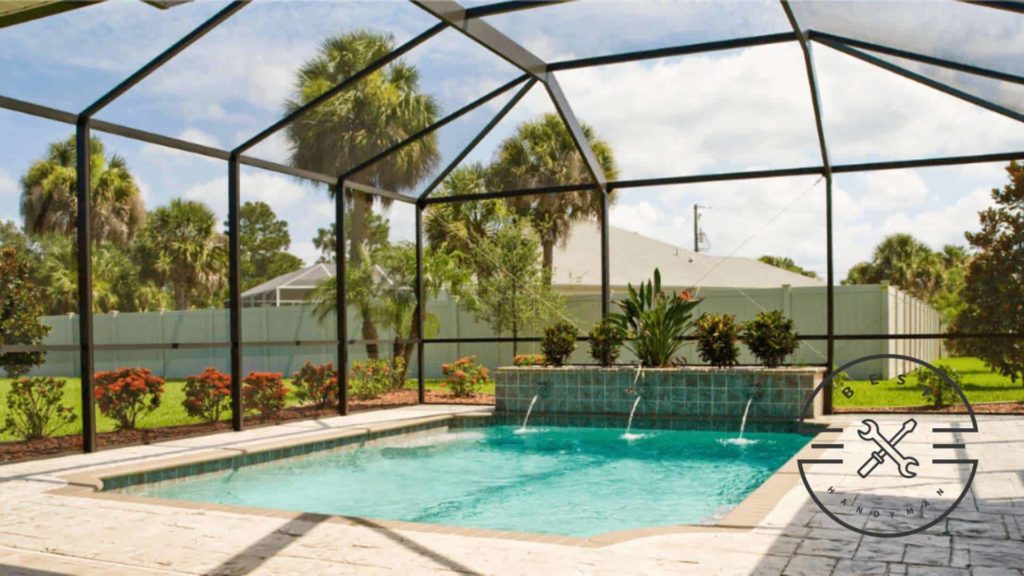
Pool enclosures are structures typically made of glass or polycarbonate panels supported by a frame. They help lower energy cost by trapping warm air within the pool.
They also reduce the difference in temperatures of the water and the surrounding air, effectively reducing the evaporation rate.
Since evaporation is one of the main reasons behind heat loss in pools, an enclosure can help reduce the workload of the heating system.
The only downside about this is you’ll have to pull out quite a large amount of money for the installation. Pool enclosures cost about $5,000 to $14,000, so think carefully and consider all possible pros and cons before building one.
Pool Heater Repair Cost
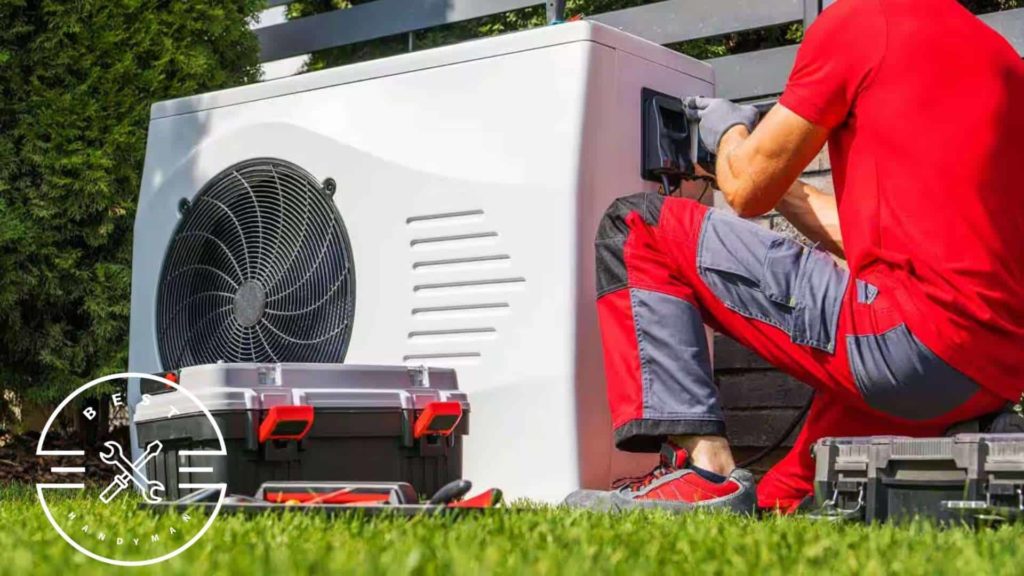
Pool heaters can last for years—but not without problems. Over time, dirt can build around the unit, or some parts may wear out, which will require some fixing.
Some common problems experienced by pool heaters include leaking panels, blocked solar collectors, worn seals, and damaged panel valves.
Common repairs for any type of pool repair typically cost the same. Repairs for pool heat pumps and solar pool heaters usually cost $200 to $500, depending on the type of repair needed and if some parts need to be replaced.
On the other hand, gas pool heaters can cost $250 to $500 to repair, depending on how bad the problem is and what components need replacing.


